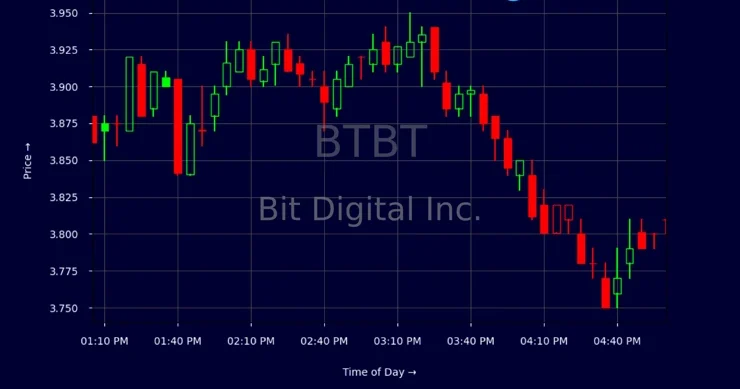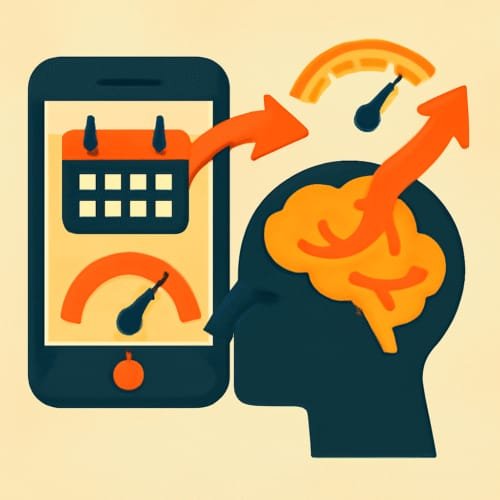Mobile app development continues to evolve rapidly, driven by technological advancements, user expectations, and the ever-changing digital landscape. As we approach 2025, the future of mobile apps promises exciting innovations that will transform how we interact with devices and services. In this article, we will explore the key trends shaping the future of mobile app development and what businesses and developers need to know to stay ahead of the curve.
1. The Rise of Artificial Intelligence (AI) and Machine Learning (ML)
Artificial intelligence and machine learning have already started to make significant impacts in the mobile app space. By 2025, the integration of AI in apps will become even more prevalent, enhancing personalization, efficiency, and automation.
AI-powered apps can predict user behavior, recommend personalized content, and provide smarter features based on individual preferences. Machine learning algorithms will help mobile apps learn and adapt over time, improving user experience and increasing engagement.
For example, AI-driven virtual assistants, like Siri and Google Assistant, will become more intuitive, while AI will power chatbots to offer 24/7 customer support and better predictive analytics for businesses.
2. 5G Connectivity: Revolutionizing Mobile Experiences
The rollout of 5G technology promises to dramatically enhance mobile app performance. With faster speeds and lower latency, mobile apps will be able to deliver more seamless experiences. The increased data transfer rates of 5G will allow apps to handle high-resolution videos, augmented reality (AR) experiences, and real-time collaboration with minimal lag.
For developers, this means more opportunities to create data-heavy apps like streaming services, gaming apps, and real-time communication tools that demand high bandwidth. Businesses will also benefit from the improved connectivity, enabling better customer interactions and efficient operations.
3. Augmented Reality (AR) and Virtual Reality (VR) Integration
AR and VR technologies are already making waves in gaming, retail, healthcare, and education. In 2025, we can expect AR and VR to be more deeply integrated into mobile apps, providing users with immersive experiences like never before.
For instance, AR-based apps will allow users to visualize products in their environment before making a purchase decision, a trend already seen with apps like IKEA’s virtual showroom. VR, on the other hand, will provide unique experiences such as virtual tours, interactive learning environments, and enhanced entertainment options.
Mobile apps will continue to bridge the gap between the digital and physical worlds, creating dynamic and engaging user experiences.
4. Cross-Platform Development: Flutter and React Native Lead the Way
Cross-platform development tools like Flutter and React Native are gaining popularity for their ability to allow developers to create apps for both iOS and Android using a single codebase. This trend is expected to grow in 2025 as businesses demand faster, cost-effective app development solutions.
These tools not only save time and reduce costs but also ensure consistency in user experience across platforms. Developers can work more efficiently, ensuring apps are scalable, stable, and compatible with a variety of devices. Cross-platform frameworks will continue to evolve, offering even more features and greater performance for developers to take advantage of.
5. Security Becomes More Critical
As cyber threats become more sophisticated, app developers must prioritize security in their development processes. Data protection and privacy concerns will drive the need for mobile apps that comply with stringent security regulations, such as GDPR.
In 2025, we can expect apps to adopt advanced security features like end-to-end encryption, multi-factor authentication (MFA), and biometric authentication (fingerprint, face recognition). Blockchain technology will also gain traction in enhancing security for sensitive data and enabling secure transactions.
With the growing focus on privacy, businesses that invest in secure mobile app development will earn the trust of their users and improve customer loyalty.
6. Cloud-Based Mobile Apps for Better Scalability
The adoption of cloud-based mobile apps is expected to surge in 2025. Cloud technology offers improved scalability, flexibility, and real-time data synchronization across multiple devices. Apps that rely on cloud infrastructure can perform better by offloading resource-intensive tasks to the cloud, providing users with a smoother experience.
With cloud-based apps, businesses can store and access data from anywhere, making remote work and collaboration easier. Furthermore, users can benefit from seamless syncing of app data across devices, ensuring consistency and reliability.
7. No-Code and Low-Code Development: Empowering Non-Developers
The no-code and low-code development revolution is enabling individuals with little or no coding knowledge to build apps. These platforms allow users to design and deploy apps using drag-and-drop interfaces and pre-built templates. By 2025, these platforms will become more powerful, enabling even more complex app features to be created without writing a single line of code.
This shift will empower small businesses and startups to develop custom mobile apps quickly, at a fraction of the cost of hiring developers. However, professional developers will still be in demand for building highly specialized, feature-rich apps that require advanced functionality.
8. Voice and Gesture Controls: A New Way to Interact with Apps
Voice assistants like Alexa, Siri, and Google Assistant have already reshaped how users interact with their devices. By 2025, voice control will become a standard feature in mobile apps, enabling users to navigate, search, and perform tasks using just their voice.
In addition to voice control, gesture-based navigation will become increasingly popular, especially with devices like foldable smartphones and smartwatches. Users will be able to swipe, tap, or gesture to perform various actions without physically touching the screen. This will create a more seamless and hands-free mobile experience.
9. The Evolution of Mobile Commerce (M-Commerce)
The growth of mobile commerce (M-commerce) is undeniable. By 2025, mobile apps will continue to be at the forefront of e-commerce, allowing users to shop, pay, and track their orders seamlessly.
Mobile apps will support secure, fast, and personalized shopping experiences, offering tailored product recommendations based on user preferences. The integration of advanced payment solutions, like Apple Pay and Google Pay, will make transactions smoother, while the continued rise of in-app purchasing will drive sales for businesses.
10. Sustainability in Mobile App Development
As the world becomes more environmentally conscious, mobile app development will evolve to support sustainability. Developers will focus on creating energy-efficient apps that reduce battery consumption and environmental impact.
Moreover, apps promoting sustainability, like those that track carbon footprints, encourage recycling, or support eco-friendly products, will continue to gain popularity. Businesses that prioritize eco-friendly practices in their app development will not only contribute to the environment but also attract consumers who value sustainability.
Conclusion
The future of mobile app development in 2025 is poised to be exciting, with new technologies and trends shaping the way apps are created and used. AI, 5G, AR/VR, cross-platform tools, and enhanced security will all play pivotal roles in how mobile apps function and impact users’ lives.
As businesses prepare for the future, embracing these trends and adopting innovative approaches to mobile app development will be crucial for staying ahead of the competition. Developers who stay informed about these trends will be able to create engaging, secure, and user-friendly apps that meet the demands of the digital age.
The world of mobile apps is constantly evolving, and those who adapt to these changes will thrive in 2025 and beyond.
Key Takeaways:
- AI and ML are revolutionizing personalization and automation in mobile apps.
- 5G connectivity will enhance app performance with faster speeds and lower latency.
- AR and VR will offer immersive experiences for gaming, retail, and education.
- Cross-platform tools like Flutter and React Native will streamline development.
- Security will be a top priority, with stronger encryption and authentication.
- Cloud-based apps offer scalability and real-time synchronization.
- No-code/Low-code platforms are empowering non-developers to build apps.
Moz is a seasoned Digital Marketing and UI/UX Strategist, Trainer, Speaker, and Senior Technical Content Writer at Techingenious. With over 15 years of experience, he has helped brands across Dubai, the UK, the US, Canada, and India craft impactful digital strategies and user experiences. Moz is known for bridging the gap between technical depth and creative execution, delivering results-driven content and SEO service solutions. Whether on stage or on screen, his passion for innovation, technology, and education continues to inspire professionals and businesses alike.





